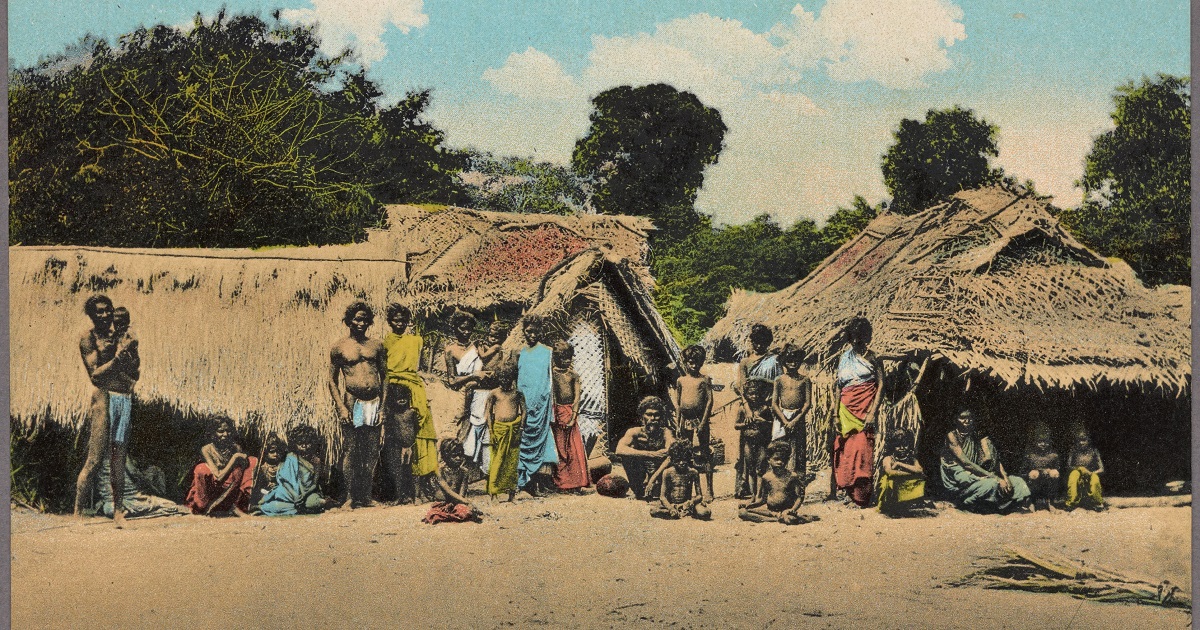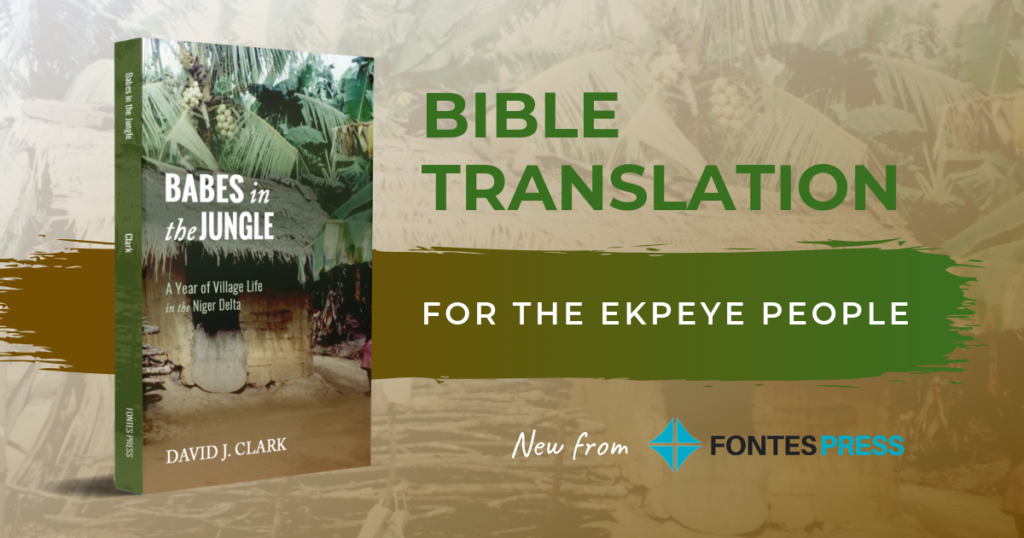
Missions. With a Family. Terrifying?
When I was in seminary, I considered throughout whether I should look into a vocation in missions. One of the factors that always worried me was the family. I did not have a family yet, but figured I would some day soon. Would it be safe to take my children and spouse overseas, especially to a developing country–perhaps even to “the bush?”
To make matters worse, I had read the biographies of William Carey and Adoniram Judson. Their lives, their troubles, and especially their family sufferings gave me further concern for my (future) family’s well-being.
I was greatly encouraged this year to read David Clark’s accounts, first of his year in a Niger Delta village, and secondly of his six years in Papua New Guinea and the Solomon Islands. In his memoir on his year in the Niger Delta, Babes in the Jungle, he recounts specifically how much better his family fared than he expected; how he learned to appreciate his English amenities; and how his daughter especially thrived both socially and linguistically (pp. 88-90):
What effect was our totally different lifestyle having on us? Before we left England our main concern had been whether we were exposing our precious baby to unnecessary health risks by taking her to Africa. The West Coast after all had a dire reputation as “the white man’s graveyard.” But as so often in life the reality was less fearful than the prospect, and the risks were not as great as we might have imagined. There is no doubt that the climate was very enervating, and with the constantly broken nights, we were constantly over-tired. From time to time we were irritable with each other, or with Helen, and from time to time the slow progress on language learning and analysis was seriously discouraging, but in retrospect, the good memories far outweigh the bad.
Although in later life we spent twenty years in Asia and the Pacific, our one year in Nigeria brought a much deeper involvement with an alien culture, and with living at a simple level, than we ever experienced again. In that respect, it was an excellent preparation, and gave us a very different perspective on the comforts of life that we take for granted in England. Since returning home, I have always felt slightly guilty if I cleaned my teeth under running water. Only now, forty years later, are such qualms becoming fashionable.
Helen was of course our own little European, but she adapted to life in the village with complete equanimity, adjusting to her circumstances placidly because she could not remember any others. She accepted other children and they accepted her on equal terms. Our great interest was in her language development, since this is at a peak when a child is two years old. She learnt both English and Ekpeye without hesitation or distinction. Sometimes she would say something to us in English, then turn and repeat the same thing to Bob in Ekpeye, so she clearly had some realisation that there were two different language systems in operation around her, and some perception of which language was appropriate for which people.
Examples of bilingual repetition often took the form of simple commands, such as “Kaj’eja come,” or “Ekpe’kpo be quiet.” At other times, she would come out with sentences incorporating words from both languages, macaronic sentences as they are called, such as “Tree da l’ehleh” (“The tree has fallen on the ground”) when she saw a very old tree with a branch that hung right down to the ground. Alicia told us that one of her boys complained to her, “Mummy, I can’t understand the language that little girl speaks.”
Like many West African languages, Ekpeye has a complex tonal system, and this was something that we really struggled with. Helen was uninhibited by the ingrained habits of speaking English for decades, and absorbed Ekpeye tones as effortlessly as an Ekpeye child. One day not long before we left I was walking in the village with her and we fell into conversation with a village man I did not know. Helen joined in the conversation, and the man turned to me with a grin and delivered his verdict in pidgin: “Dis pickin de savvy our language pass you people” (“This child knows our language better than you adults”). We adults undoubtedly had a wider vocabulary than Helen did, but what he meant was that she got the tones right, whereas we made lots of mistakes. Well, it all helped to prevent us from overestimating our own ability, not that there was much danger of that.
Of course there are still challenges, and families must adjust to transitions and new cultures. But thankfully, unlike in Carey’s and Judson’s times, there are many organizations today that provide wonderful training and member support to ensure that families adjust well and thrive in missions contexts. I’m encouraged by Clark’s experiences with his family, and also by his daughter’s natural thriving in their African village. The same was true for his other children during his time in Papua New Guinea and other locations as well.
Read more in Babes in the Jungle: A Year of Village Life in the Niger Delta
See also Clark’s Of Islands and Highlands: Memoirs of Papua New Guinea and the Solomon Islands 1976-1982


